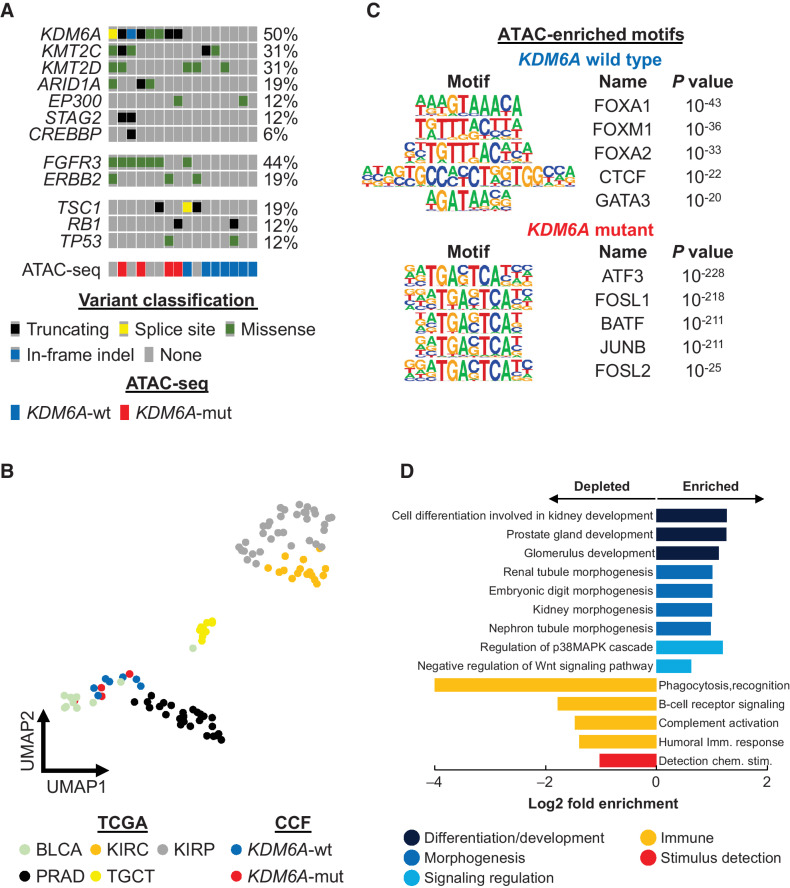Figure 1.
KDM6A mutation alters chromatin accessibility in human bladder cancers. A, Whole-exome sequencing of bladder cancer surgical specimens (n = 16). Seven KDM6A-wt (blue) and four KDM6A-mut (red) cases were chosen for ATAC-seq analysis. B, UMAP analysis of Cleveland Clinic bladder cancer specimens (KDM6A-wt, blue; KDM6A-mut, red) and TCGA genitourinary cancer specimens based on ATAC-seq data. C, Enriched motifs in accessible chromatin peaks specific for KDM6A-wt (blue) and KDM6A-mut (red) cancers. D, Functional enrichment analysis of accessible chromatin peaks enriched in KDM6A-wt cancers.

